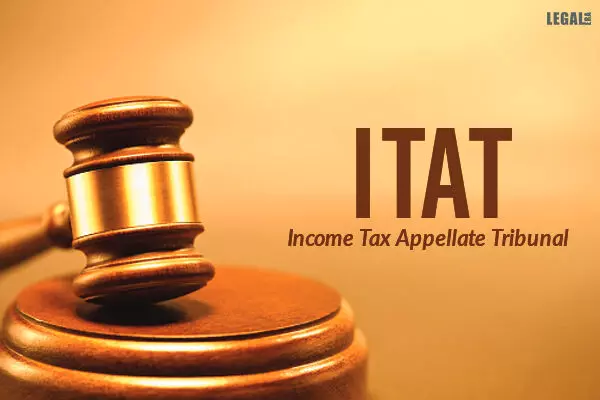- Home
- News
- Articles+
- Aerospace
- Artificial Intelligence
- Agriculture
- Alternate Dispute Resolution
- Arbitration & Mediation
- Banking and Finance
- Bankruptcy
- Book Review
- Bribery & Corruption
- Commercial Litigation
- Competition Law
- Conference Reports
- Consumer Products
- Contract
- Corporate Governance
- Corporate Law
- Covid-19
- Cryptocurrency
- Cybersecurity
- Data Protection
- Defence
- Digital Economy
- E-commerce
- Employment Law
- Energy and Natural Resources
- Entertainment and Sports Law
- Environmental Law
- Environmental, Social, and Governance
- Foreign Direct Investment
- Food and Beverage
- Gaming
- Health Care
- IBC Diaries
- In Focus
- Inclusion & Diversity
- Insurance Law
- Intellectual Property
- International Law
- IP & Tech Era
- Know the Law
- Labour Laws
- Law & Policy and Regulation
- Litigation
- Litigation Funding
- Manufacturing
- Mergers & Acquisitions
- NFTs
- Privacy
- Private Equity
- Project Finance
- Real Estate
- Risk and Compliance
- Student Corner
- Take On Board
- Tax
- Technology Media and Telecom
- Tributes
- Viewpoint
- Zoom In
- Law Firms
- In-House
- Rankings
- E-Magazine
- Legal Era TV
- Events
- Middle East
- Africa
- News
- Articles
- Aerospace
- Artificial Intelligence
- Agriculture
- Alternate Dispute Resolution
- Arbitration & Mediation
- Banking and Finance
- Bankruptcy
- Book Review
- Bribery & Corruption
- Commercial Litigation
- Competition Law
- Conference Reports
- Consumer Products
- Contract
- Corporate Governance
- Corporate Law
- Covid-19
- Cryptocurrency
- Cybersecurity
- Data Protection
- Defence
- Digital Economy
- E-commerce
- Employment Law
- Energy and Natural Resources
- Entertainment and Sports Law
- Environmental Law
- Environmental, Social, and Governance
- Foreign Direct Investment
- Food and Beverage
- Gaming
- Health Care
- IBC Diaries
- In Focus
- Inclusion & Diversity
- Insurance Law
- Intellectual Property
- International Law
- IP & Tech Era
- Know the Law
- Labour Laws
- Law & Policy and Regulation
- Litigation
- Litigation Funding
- Manufacturing
- Mergers & Acquisitions
- NFTs
- Privacy
- Private Equity
- Project Finance
- Real Estate
- Risk and Compliance
- Student Corner
- Take On Board
- Tax
- Technology Media and Telecom
- Tributes
- Viewpoint
- Zoom In
- Law Firms
- In-House
- Rankings
- E-Magazine
- Legal Era TV
- Events
- Middle East
- Africa
ITAT rules on additional income declared under modified return

ITAT rules on additional income declared under modified return
It relied on the decision of the Karnataka High Court in a previous case
The Delhi bench of the Income Tax Appellate Tribunal (ITAT) has ruled on the levying of interest under the Income Tax Act, 1961. It was for the non-payment or short payment of advance tax installment and delay in the payment of income tax, respectively.
The tribunal held that interest could not be levied on additional income as per the advance pricing agreement entered between the assessee and the Central Board of Direct Taxes (CBDT).
The appellant-assessee, Colt Technology Services, provides Information Technology Enabled Services and Contract Software Development Solutions to its associate enterprises.
It performs back-end operations in all business spaces including network operations and engineering, IT service provisioning, sales and marketing support, human resources and finance.
The appellant-assessee contended that since it could not estimate the additional income at the time of the advance tax installment and while filing the Income Tax Return (ITR), it did not pay the advance tax. It submitted that the interest under the IT Act for non/short payment of advance tax installment and delay in the payment of income tax should not be levied on the additional income declared.
Relying on the earlier judgments, the bench comprising Judicial Member Yogesh Kumar US and Accountant Member BRR Kumar, observed that the appellant had not committed a default in paying the advance tax. In fact, it had actually paid it. Hence it could not be held liable to pay interest.
The bench held, "It is rightly submitted that it was not possible for the appellant to anticipate the events that were to take place in the next financial year and pay the advance tax on the basis of those anticipated events."
Relying on the decision of the Karnataka High Court in an earlier case, the tribunal held that as per the advance pricing agreement entered between the appellant and the CBDT, the interest was illegal.



